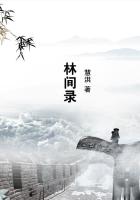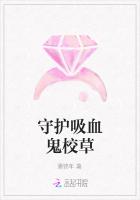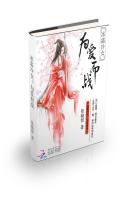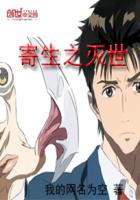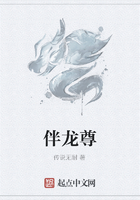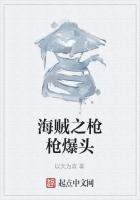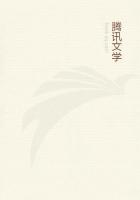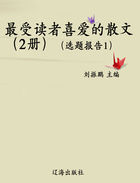Raskolnikov had a fearful dream. He dreamt he was back in his childhood in the little town of his birth. He was a child about seven years old, walking into the country with his father on the evening of a holiday. It was a grey and heavy day, the country was exactly as he remembered it; indeed he recalled it far more vividly in his dream than he had done in memory. The little town stood on a level flat as bare as the hand, not even a willow near it; only in the far distance, a copse lay, a dark blur on the very edge of the horizon. A few paces beyond the last market garden stood a tavern, a big tavern, which had always aroused in him a feeling of aversion, even of fear, when he walked by it with his father. There was always a crowd there, always shouting, laughter and abuse, hideous hoarse singing and often fighting. Drunken and horrible-looking figures were hanging about the tavern. He used to cling close to his father, trembling all over when he met them. Near the tavern the road became a dusty track, the dust of which was always black. It was a winding road, and about a hundred paces further on, it turned to the right to the graveyard. In the middle of the graveyard stood a stone church with a green cupola where he used to go to mass two or three times a year with his father and mother, when a service was held in memory of his grandmother, who had long been dead, and whom he had never seen. On these occasions they used to take on a white dish tied up in a table napkin a special sort of rice pudding with raisins stuck in it in the shape of a cross. He loved that church, the old-fashioned, unadorned ikons and the old priest with the shaking head. Near his grandmother’s grave, which was marked by a stone, was the little grave of his younger brother who had died at six months old. He did not remember him at all, but he had been told about his little brother, and whenever he visited the graveyard he used religiously and reverently to cross himself and to bow down and kiss the little grave. And now he dreamt that he was walking with his father past the tavern on the way to the graveyard; he was holding his father’s hand and looking with dread at the tavern. A peculiar circumstance attracted his attention: there seemed to be some kind of festivity going on, there were crowds of gaily dressed townspeople, peasant women, their husbands, and riff-raff of all sorts, all singing and all more or less drunk. Near the entrance of the tavern stood a cart, but a strange cart. It was one of those big carts usually drawn by heavy cart-horses and laden with casks of wine or other heavy goods. He always liked looking at those great cart-horses, with their long manes, thick legs, and slow even pace, drawing along a perfect mountain with no appearance of effort, as though it were easier going with a load than without it. But now, strange to say, in the shafts of such a cart he saw a thin little sorrel beast, one of those peasants’ nags which he had often seen straining their utmost under a heavy load of wood or hay, especially when the wheels were stuck in the mud or in a rut. And the peasants would beat them so cruelly, sometimes even about the nose and eyes, and he felt so sorry, so sorry for them that he almost cried, and his mother always used to take him away from the window. All of a sudden there was a great uproar of shouting, singing and the balalaika, and from the tavern a number of big and very drunken peasants came out, wearing red and blue shirts and coats thrown over their shoulders.
“Get in, get in!” shouted one of them, a young thick-necked peasant with a fleshy face red as a carrot. “I’ll take you all, get in!”
But at once there was an outbreak of laughter and exclamations in the crowd.
“Take us all with a beast like that!”
“Why, Mikolka, are you crazy to put a nag like that in such a cart?”
“And this mare is twenty if she is a day, mates!”
“Get in, I’ll take you all,” Mikolka shouted again, leaping first into the cart, seizing the reins and standing straight up in front. “The bay has gone with Matvey,” he shouted from the cart—“and this brute, mates, is just breaking my heart, I feel as if I could kill her. She’s just eating her head off. Get in, I tell you! I’ll make her gallop! She’ll gallop!” and he picked up the whip, preparing himself with relish to flog the little mare.
“Get in! Come along!” The crowd laughed. “D’you hear, she’ll gallop!”
“Gallop indeed! She has not had a gallop in her for the last ten years!”
“She’ll jog along!”
“Don’t you mind her, mates, bring a whip each of you, get ready!”
“All right! Give it to her!”
They all clambered into Mikolka’s cart, laughing and making jokes. Six men got in and there was still room for more. They hauled in a fat, rosy-cheeked woman. She was dressed in red cotton, in a pointed, beaded headdress and thick leather shoes; she was cracking nuts and laughing. The crowd round them was laughing too and indeed, how could they help laughing? That wretched nag was to drag all the cartload of them at a gallop! Two young fellows in the cart were just getting whips ready to help Mikolka. With the cry of “now,” the mare tugged with all her might, but far from galloping, could scarcely move forward; she struggled with her legs, gasping and shrinking from the blows of the three whips which were showered upon her like hail. The laughter in the cart and in the crowd was redoubled, but Mikolka flew into a rage and furiously thrashed the mare, as though he supposed she really could gallop.
“Let me get in, too, mates,” shouted a young man in the crowd whose appetite was aroused.
“Get in, all get in,” cried Mikolka, “she will draw you all. I’ll beat her to death!” And he thrashed and thrashed at the mare, beside himself with fury.
“Father, father,” he cried, “father, what are they doing? Father, they are beating the poor horse!”

